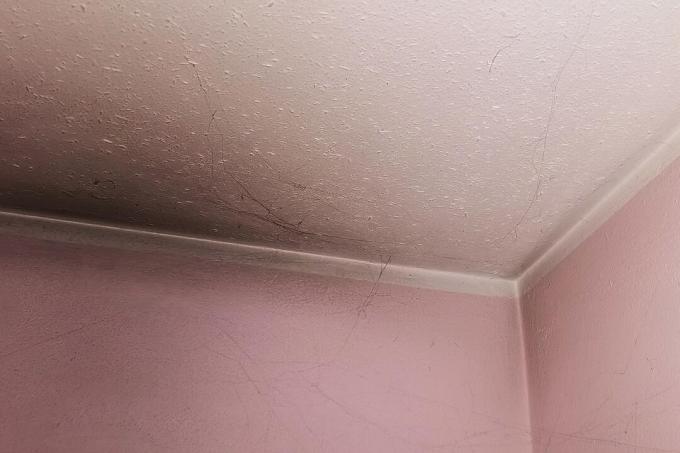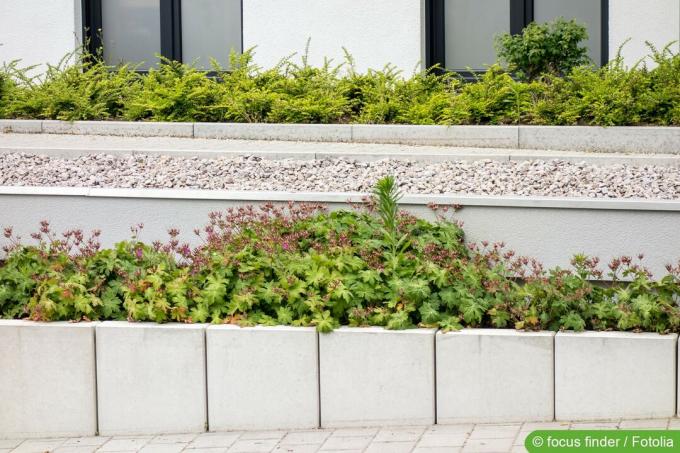

Table of contents
- Measure
- layer thickness
When applying interior plaster, it goes without saying that the right planning and technology are important. This also includes correctly calculating the required quantity. We explain how it works here.
Measure
The first and most important step in determining the amount of interior plaster required is measuring the walls. This should be done very carefully and not estimated. There is no deduction for doors and windows with a surface area of less than two and a half square metres. The resulting excess can be used, for example, to compensate for unevenness.
However, if the surface of passageways, windows or doors is larger than this, the area should be deducted. The overall calculation is very simple. The length and the height of the respective wall are simply multiplied with each other and then the values of all walls are added together. The following example clarifies the procedure:
Two walls are each 4 meters long and 2.5 meters high.
- 4m x 2.5m = 10 square meters per wall
Two walls are each 3 meters long and 2.5 meters high.
- 3m x 2.5m = 7.5 square meters per wall
- 10 sqm + 10 sqm + 7.5 sqm + 7.5 sqm = 35 sqm
The room to be plastered has a wall surface of 35 square meters. If the ceiling also needs to be plastered, the same calculation is required and the result must also be added up.
layer thickness

The second decisive factor in the need for interior plaster is the layer thickness. How thick the layer has to be depends on the type of plaster and the condition of the walls. Ten to 25 millimeters are common. However, in addition to the circumstances and the type of plaster, the manufacturer's information is also important. In the case of interior plaster, you can look directly at the packaging, but you can also pay attention to the information that can be viewed online.
The rule of thumb is:
- 10 millimeter layer thickness 15 to 18 kilograms per square meter
- 15 millimeter layer thickness 24 to 28 kilograms per square meter
- 20 millimeter layer thickness 32 to 35 kilograms per square meter
- 25 millimeter layer thickness 40 to 43 kilograms per square meter
Another factor is the nature of the subsoil. If base plaster has already been used and any unevenness has been compensated for, the amount of interior plaster can be significantly less. This allows better results to be achieved on the one hand and costs to be saved on the other.
 Home editorial office
Home editorial office
Learn more about wall / wall

Fogging: what to do against black dust on walls?
Fogging is still a foreign concept to many, although black dust on walls, ceilings and carpets has been a widespread problem since the 1990s. We give all the important information about the tiresome topic from the emergence to the fight.

Have L-bricks placed: overview of prices / costs
Making slope fortifications or edging from L-stones is one of the more challenging real estate projects. While you can certainly build smaller fortifications yourself, large amounts of earth should be supported by specialist companies. We explain what to look out for and what costs to expect.

Nails for concrete walls: this is to be considered
In addition to screws and adhesives, the do-it-yourself repertoire also includes nails for the solid assembly and attachment of materials. Not every nail is suitable for every purpose. Choosing the right nail depends on various factors, such as the construction material of the support wall.

Brick Wall: Remove plaster from bricks
Removing plaster from a brick wall takes effort and careful handling. Bricks are delicate and crack/break easily. Here sensitivity and the right instructions are required, which experts have created for hobby craftsmen and those who want to become one.

Drain house & masonry | Cost & Duration
Anyone who needs to have their house and masonry drained has a choice of different methods. We offer here how the costs can be, how long it can take and other important facts.

Calculate dew point on the wall | 5 information on dew point calculation
The dew point is an important tool, especially when insulating buildings. It indicates where the temperature is so low that water vapor condenses as moisture. For help with calculating how this value is determined, see the guide.



